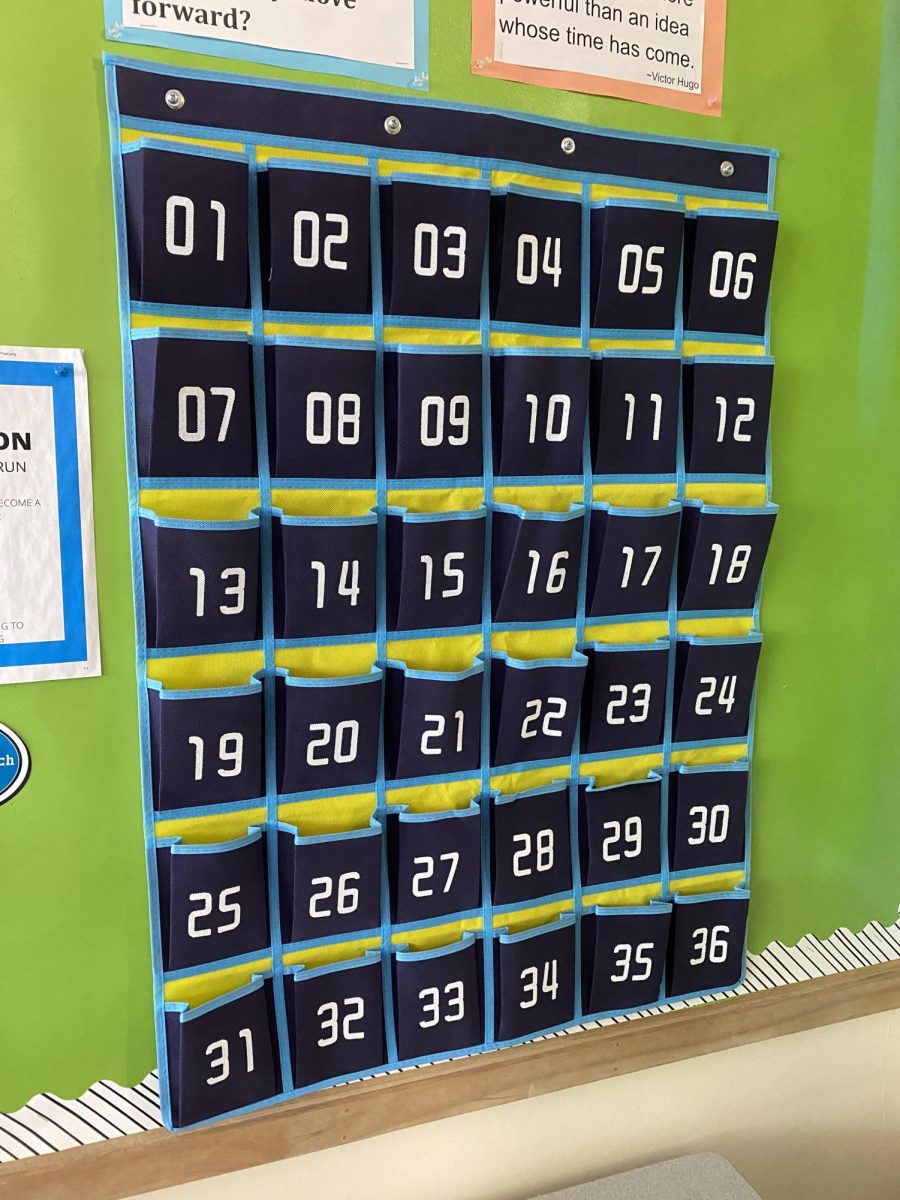Scituate High School’s new phone policy, requiring students to put their phones in classroom phone holders for the duration of class, has been controversial; however, the policy’s benefits have also been acknowledged.
SHS Principal Mark Loranger was considering the implementation of a school-wide phone policy for some time now. His first step in this process was research. While reading the book The Anxious Generation, by Jonathon Haidt, Loranger learned that data showed “it’s not good for students to have phones in [their] hands while instruction is going on.” He then learned that 85% of MA schools have a school-wide policy. His main intent with the policy was “to improve student learning,” So far, he has seen very few issues with the policy, knowing that “students see the benefit.”
Noting that he has recently started turning his phone upside down during meetings, Loranger said he has seen benefits himself, commenting that he can “pay attention to what’s going on in the meeting” without looking at his phone. Teachers at SHS see a similar response from their students. For several years, SHS mathematics teacher Jamie Forde has asked students to put their phones away. Forde said he has seen “a growth and a difference in the fact that students are actually talking to people in the room.”
The underclassmen’s response to the new phone policy has been, for the most part, surprisingly positive. Freshman Ace Smith and sophomore Hailey Gill expressed their concerns about the policy; however, they can see how it may benefit their education. Smith said the new policy gives him “more freedom,” yet he admitted to being “a little mad.” Smith added, “I thought I was going to be able to use my phone freely in the high school.”
Gill believes the phone policy is “unnecessary” because it is “annoying to have to go back” to essentially what the phone policy was in middle school. Although the underclassmen have expressed these concerns, they can agree on the policy. Smith said he can “get used to” the policy even though it feels annoying.
Upperclassmen, who are used to having more phone access, have pushed back against the new policy. Junior Andrew Jodka said he “has not noticed any benefits” because it’s more difficult to do simple tasks: “I can’t text my mom, check Saturn, or use my phone for a quick assignment.” According to Jodka, it has been hard adjusting to the new phone policy since it has been such a quick turnaround from the policies in the years prior.
Senior Clara Adams agrees with Jodka’s sentiments, noting, “The policy is unnecessary for me personally.” Adams explained that her phone has never impacted her attentiveness at school, and it is frustrating to put her phone away each class. With the lack of senior privileges given to the class of 2025, Adams feels this policy is unfair to the seniors–and she is not alone. Many seniors have expressed their frustrations concerning the phone policy, and Adams, along with others, has said they wish the policy would be implemented for underclassmen only. Even though Adams deemed this policy unnecessary for her, she can see the benefits for students who struggle to pay attention in class, and the long-term effects will benefit students in the upcoming years.
Students and faculty are not the only community members who can voice their opinions on this policy; parents are seeing advantages and disadvantages as well. The mother of freshman Ace Smith and recent graduate Tyger Smith, Jacqui McDermott, has been aware of the phone issue for years. McDermott acknowledged how it can be difficult for students to remain attentive throughout their classes. With the addition of a device on hand, concentration could be at a severe risk. Thinking back to her recent graduate’s high school days, she remembers her son “responding to [her] texts all day long…immediately” and wondering, “How distracted are they?” McDermott believes her recent graduate would have benefited from the phone policy because she has seen how students “have shorter attention spans now” and become increasingly distracted when they have access to their cell phones.
Although opinions across SHS vary, one thing is for certain: a lack of phones is creating stronger relationships among the school community. When asked about the possible student benefits, Forde recalled Superintendent Burkhead’s opening remarks during a 2022 Welcome Address for SPS faculty members. During his statement, the Superintendent detailed that the three most important things in a school system are “relationships, relationships, relationships.” These words resonated with Forde, who said, “This is what I’ve been doing for 29 years.” Forde is dedicated to his students, and by implementing a new phone policy, he has seen major growth in every student relationship. However, Forde’s most exciting development has been having to “politely ask students to stop talking after a quiz,” because they don’t have the distraction of their phones anymore.
